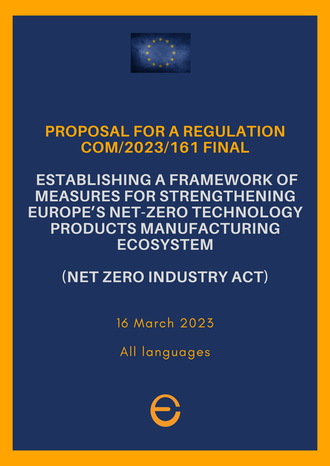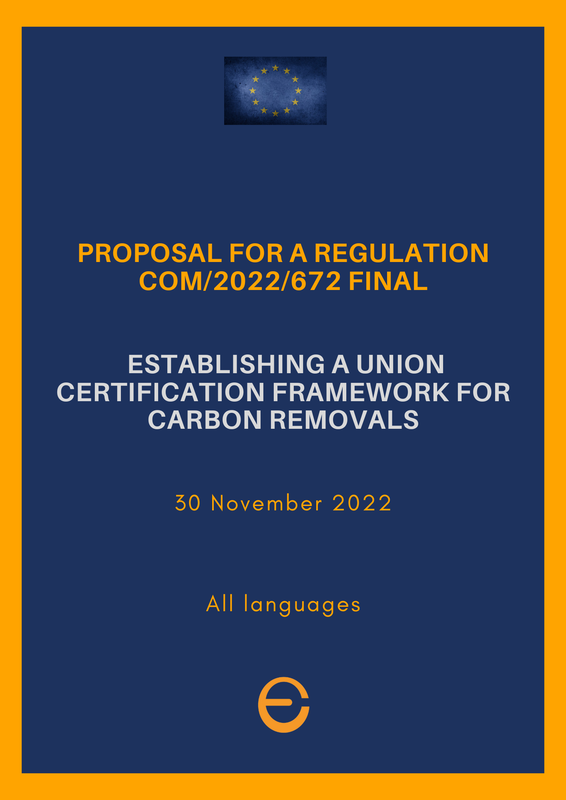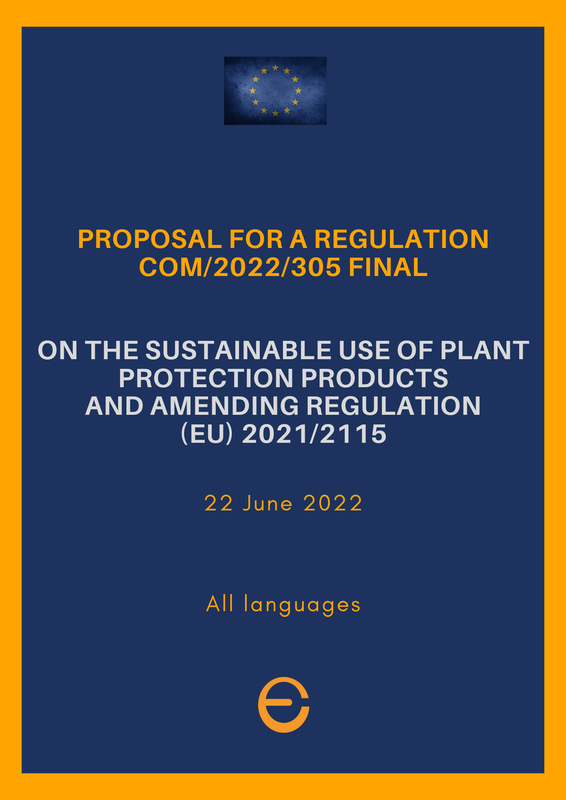|
Brussels: |
|
This page is updated constantly
Briefing
Plenary Session of the European Parliament
15-18 January 2024
Main topics under discussion
Minimum breaks for the occasional passenger transport sector
This debate, in which the Commission will participate, will take place on Monday to discuss the Commission Proposal and the EP Report tabled by MEP Henna Virkkunen for TRAN committee.
Debate on Monday at 17:30
Vote on Tuesday.
Debate on Monday at 17:30
Vote on Tuesday.
|
The EC Proposal seeks to revise Regulation (EC) No 561/2006, which sets maximum driving times, minimum breaks, and rest periods for drivers in the commercial transport sector. The regulation currently covers two types of drivers: those transporting goods in vehicles over 3.5 tonnes (expanding to include vehicles over 2.5 tonnes in certain operations from July 2026) and those transporting passengers in vehicles designed for more than nine people. The proposal addresses the unique needs of the occasional-passenger transport sector, characterized by high seasonality, varying driving distances, and less driving time compared to freight transport. The current rules often require rest periods and breaks at inconvenient times, affecting drivers' income, working conditions, and consequently, road safety. The existing regulation has been disputed for its suitability for occasional-passenger transport, and an impact assessment confirmed the need for more appropriate rules. There's also an uneven playing field between international and domestic occasional-passenger transport services regarding the application of the twelve-day derogation for rest periods. Therefore, the proposal aims to allow more flexible distribution of breaks and rest periods and ensure equal treatment between international and domestic occasional-passenger transport operations. It maintains the minimum duration of breaks and rest periods and maximum driving times, aiming to enhance the efficiency of occasional-passenger transport services and improve working conditions for drivers, especially in reducing stress and fatigue. |
Raw materials
 Click to read
Click to read
The Regulation discussed and voted this week has the following objectives:
- to strengthen the different stages of the European critical raw materials value chain;
- to diversify the EU's imports of critical raw materials to reduce strategic dependencies;
- to improve the EU capacity to monitor and mitigate current and future risks of disruptions to the supply of critical raw materials;
- to ensure the free movement of critical raw materials on the single market while ensuring a high level of environmental protection, by improving their circularity and sustainability.
The European Commission's proposal aims to address challenges related to Critical Raw Materials (CRMs), which are essential for several strategic sectors of the EU, including renewable energy, digital industry, defense, and health. These materials are crucial for the EU economy but are at high risk of supply disruption due to heavy reliance on imports and concentration of suppliers in a few non-EU countries. The main goals of the proposal are to strengthen the European CRM value chain, diversify imports to reduce strategic dependencies, improve the EU's ability to monitor and mitigate supply disruption risks, and ensure the free movement of CRMs in the single market while enhancing their circularity and sustainability. This proposal aligns with the European Green Deal strategy and the European Climate Law, intending to meet the EU's future needs for CRMs in light of increasing demand and strategic technologies and sectors' requirement.
Here are some specific values mentioned in the regulation:
- Dependence on imports: For instance, the EU sources 97% of its magnesium from China. Heavy rare earth elements used in permanent magnets are exclusively refined in China.
- Centralized production and refining: 63% of the world's cobalt, used in batteries, is extracted in the Democratic Republic of Congo, while 60% is refined in China.
These figures highlight the heavy concentration of Critical Raw Materials (CRMs) supply and the EU's dependence on a few non-EU countries, exposing it to significant supply disruption risks.
Debate on Monday at 18:30
Vote on a Report for a Proposal for a Regulation on Tuesday
Carbon Removal Certification
|
The Commission's proposal for a Regulation on a carbon removal certification framework aims to achieve climate neutrality by 2050. This voluntary framework will define and ensure the quality of carbon removals through clear criteria and processes for monitoring, reporting, and verification, thereby promoting innovative technologies and sustainable practices. The certification will cover nature-based solutions, technological methods, and materials that store carbon. It will also safeguard environmental integrity, biodiversity, and combat greenwashing. The certification process will be standardized and transparent, with independent bodies verifying compliance, resulting in the issuance of certificates and recording in public registries. |
Abolition of Pesticiedes
|
Under the EU's farm to fork strategy, part of the European Green Deal, the EU Commission aims for a 50% reduction in both the use and risk of chemical plant protection products, and a 50% reduction in the use of more hazardous ones by 2030. The proposed regulation, which seeks to replace the 2009 directive, mandates Member States to meet these targets via binding national targets. It prohibits the use of all plant protection products in sensitive areas to safeguard biodiversity and health. The proposal has sparked debate, with environmental groups advocating for greater ambition and the farming sector expressing concerns over the practical implications and the lack of alternative solutions. The proposed indicators for tracking progress are also facing scrutiny. |
In the EU Parliament, the environment committee (ENVI) has Sarah Wiener as rapporteur, while AGRI, which shares legislative responsibilities, appointed Clara Aguilera. They've debated on national PPP reduction targets, precision farming, and PPP bans in sensitive areas, among other issues. The Commission's impact assessment was criticized by AGRI for neglecting food security, prompting a request for an additional assessment.
The Council, concerned with individual national targets and PPP use in sensitive areas, has also requested a complementary impact assessment considering the Ukraine war's effects on food security and the EU's resilience to supply chain disruptions. Commissioner Kyriakides emphasized biodiversity's role in food security, and a comprehensive analysis of food security drivers was planned. A Council decision on further study to support the impact assessment is underway, alongside discussions on sensitive area provisions.
Farming community vs. Environmental Organisations - The EU plan to reduce pesticides has faced criticism mainly from the farming community, which is concerned about the absence of viable alternatives for farmers, the broad definition of sensitive areas, and potential impacts on business continuity. Meanwhile, environmental organizations are advocating for more ambition in the reduction of pesticide use, pushing for stricter measures to protect biodiversity and public health. The debate showcases the tension between agricultural interests seeking practical solutions for crop protection and environmental concerns focused on reducing chemical use in agriculture. Debate on Tuesday at 9:00.
Read the technical factsheet of the Parliament
The Council, concerned with individual national targets and PPP use in sensitive areas, has also requested a complementary impact assessment considering the Ukraine war's effects on food security and the EU's resilience to supply chain disruptions. Commissioner Kyriakides emphasized biodiversity's role in food security, and a comprehensive analysis of food security drivers was planned. A Council decision on further study to support the impact assessment is underway, alongside discussions on sensitive area provisions.
Farming community vs. Environmental Organisations - The EU plan to reduce pesticides has faced criticism mainly from the farming community, which is concerned about the absence of viable alternatives for farmers, the broad definition of sensitive areas, and potential impacts on business continuity. Meanwhile, environmental organizations are advocating for more ambition in the reduction of pesticide use, pushing for stricter measures to protect biodiversity and public health. The debate showcases the tension between agricultural interests seeking practical solutions for crop protection and environmental concerns focused on reducing chemical use in agriculture. Debate on Tuesday at 9:00.
Read the technical factsheet of the Parliament
Vote on a Report + Amendments
Title
Text
No vote.
Title
Title
After the approval in committee on Industry, Research and Energy of the text agreed at 1st reading interinstitutional negotiations on Data Act, the Assembly will vote the agreement with the Council reached on 27 June 2023.
The proposed Data Act introduces new rules for accessing and utilizing data generated in the EU, spanning all economic sectors. Its objectives include ensuring fairness in distributing the value derived from data, promoting a competitive data market, fostering data-driven innovation, and increasing data accessibility.
Additionally, the legislation facilitates the transition between data processing service providers, establishes safeguards against unauthorized data transfers by cloud service providers, and supports the development of interoperability standards for cross-sector data reuse.
The Data Act empowers individuals and businesses by enhancing data portability, allowing for the easy transfer of data generated by smart objects, machines, and devices across various services. It grants consumers and companies more control over the data generated by their connected products, enabling them to influence how this data is used.
The political agreement on the Data Act includes the following key elements:
- Scope of Legislation: The regulation clarifies that users of connected devices, including smart home appliances and industrial machinery, can access data generated by these devices, even if the data is typically controlled by manufacturers and service providers. It focuses on the functionalities of data collected by connected products.
- Data Sharing, Compensation, and Dispute Settlement: Measures are in place to prevent unfair contractual terms in data-sharing contracts and ensure reasonable compensation for businesses making data available. Adequate dispute settlement mechanisms are also provided.
- Trade Secrets: The agreement safeguards trade secrets and intellectual property rights, with measures to prevent abusive behavior by data holders.
- Public Sector Access: Public sector bodies, the Commission, the European Central Bank, and Union bodies can access and use private sector data in exceptional circumstances, particularly during public emergencies or for tasks in the public interest.
- Customer Benefits: Customers can easily switch between different data-processing service providers (cloud providers) and have added safeguards against unlawful data transfers.
- Interplay with Existing Legislation: The legislation clarifies its relationship with existing horizontal and sectoral laws, such as the Data Governance Act and the General Data Protection Regulation (GDPR).
Vote of a Report with the interinstitutional agreement.
Read more on EU Digital Policy here
Effectiveness of the EU sanctions on Russia
Five Groups presented their resolutions, and we expect their present common text.
All call for the imposition of various sanctions and measures in response. However, they also have some differences in terms of specific measures and approaches. Here are the common and different considerations of the five texts.
Common Considerations:
- Strong Condemnation of Russian Aggression: All five texts strongly condemn Russia's illegal, unprovoked, and unjustifiable war of aggression against Ukraine. They express unwavering support for Ukraine's independence, sovereignty, and territorial integrity within its internationally recognized borders.
- Sanctions and Restrictive Measures: All texts emphasize the need for imposing or strengthening sanctions against Russia. They call for various forms of sanctions, both in terms of the sectors they target and the entities they address, in response to Russia's actions.
- Coordination and Cooperation: The texts stress the importance of coordination and cooperation, both within the EU and with international partners, such as the United States and like-minded countries. This collaboration is aimed at ensuring the effectiveness of the sanctions and addressing sanctions evasion.
- Economic and Energy Sector Sanctions: There is a consistent focus on targeting Russia's economy and energy sector. This includes measures such as sanctions on Russian oil and gas companies, the reduction of energy imports, and the disruption of Russia's energy supply chain.
- Investigation and Enforcement: There is an emphasis on investigating and punishing violations of sanctions, as well as enhancing enforcement mechanisms. This includes measures to prevent the circumvention of sanctions by companies and third countries.
Different Considerations:
- Specific Sanctions Proposals: Texts 3, 4, and 5 provide more specific and detailed proposals for sanctions measures. For example, Text 3 focuses on price caps, oil spill insurance, and tanker services. Text 4 calls for sanctions on specific Russian banks, including VEB, and mentions the UK's relatively successful sanctions implementation.
- Diamond Sanctions: Text 5 specifically addresses the diamond trade, proposing a ban on the import of Russian diamonds and the sanctioning of the state-owned company Alrosa. This is not a feature of the other texts.
- Business Engagement and Social Responsibility: Text 5 directly calls on Western companies to leave the Russian market, citing concerns over their engagement with the Russian economy. It emphasizes the importance of corporate social responsibility.
- Belarus-Related Measures: Text 5 includes measures directed at Belarus, highlighting its cooperation with Russia in the aggression against Ukraine and weaponization of migration. Text 4 also mentions the need for Belarus to mirror the imposed sanctions.
- Global and International Measures: Text 5 contains recommendations to expel or suspend Russia's membership in international organizations and to block its participation in sporting and cultural events. Text 4 calls for engagement with OPEC+ countries to prevent Russia from profiting from oil exports.
All five texts share common concerns about the situation in Ukraine and the need for sanctions. However, they differ in the specificity of proposed measures, the sectors they emphasize, and their approach to addressing the involvement of Belarus and international organizations. Text 5, in particular, includes some unique proposals related to corporate engagement and international actions.
Debate held on 17 October 2023 - Watch the debate
Vote on Resolutions.:
- B9-0453/2023 - S&D Group
- B9-0457/2023 - ECR Group
- B9-0455/2023 - EPP Group
- B9-0456/2023 - Verts/ALE Group
- B9-0457/2023 - ECR Group
JOINT MOTION FOR A RESOLUTION on the effectiveness of the EU sanctions on Russia
The Joint Motion for Resolution, signed by the five Groups that tabled a resolution, strongly condemns Russia's war against Ukraine, which is described as unprovoked, illegal, and unjustified, and criticizes Belarus's involvement. It calls for an immediate end to Russia's military actions, the withdrawal of its forces, and the release of detained Ukrainians.
The Resolution outlines the aims of EU sanctions to strategically weaken Russia’s military capabilities and economic base, emphasizing the need for firm, cohesive action and honest enforcement of sanctions. The resolution stresses the need for Member States to identify and freeze Russian assets, and to adopt a harmonized approach to sanctions enforcement. It calls for increased EU centralization and oversight in sanction implementation, monitoring to prevent circumvention, and suggests that certain violations could be prosecuted as complicity in war crimes.
The text also expresses concern over trade in sanctioned goods with Russia and the lack of a compliance culture, urging for tighter controls, transparency, and punitive measures for non-compliance. It advocates for expanded and consistent export controls, and for companies to divest from Russia and comply with sanctions to be eligible for EU funding.
The resolution also suggests the use of confiscated assets to aid Ukraine, calls for enhanced strategic communication against disinformation, and demands a comprehensive review and improvement of EU sanctions, with coordinated efforts at the international level. It ends with an instruction to forward the resolution to various authorities and organizations.




